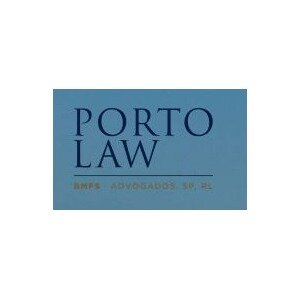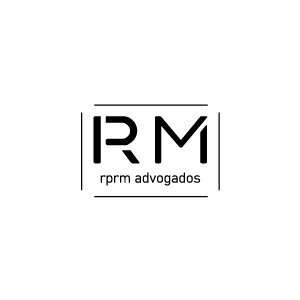Best Conveyancing Lawyers in Porto
Share your needs with us, get contacted by law firms.
Free. Takes 2 min.
Free Guide to Hiring a Real Estate Lawyer
List of the best lawyers in Porto, Portugal
About Conveyancing Law in Porto, Portugal
Conveyancing is the legal process of transferring property ownership from one party to another. In Porto, Portugal, this involves a series of procedural steps, legal checks, and documentation to ensure the transfer is valid and free of any legal or financial issues. Given the historical nature of property deeds in Porto and evolving property laws, the Portuguese conveyancing process is comprehensive. It ensures both buyers and sellers understand their rights, responsibilities, and the legal standing of the property. Engaging with the process carefully helps avoid future disputes and provides security for all parties.
Why You May Need a Lawyer
While not legally mandatory for all stages, hiring a lawyer during conveyancing in Porto is highly recommended. Some common situations where legal counsel is beneficial include:
- Reviewing and drafting the promissory contract of sale and final deed.
- Ensuring the property is free from debts, liens, or legal encumbrances.
- Handling the complexities of inheritance, co-ownership, or marital property divisions.
- Managing disputes with buyers, sellers, or third parties.
- Assisting non-Portuguese speakers with the administrative process and legal terminology.
- Representing clients in negotiations and at the notary’s office if they cannot be present.
- Verifying compliance with city or municipal regulations, especially for renovations or heritage-listed properties.
Local Laws Overview
Conveyancing in Porto adheres closely to national Portuguese property law, though some local regulations or urban plans may impact individual cases. Notable aspects to consider include:
- The Land Registry (Conservatória do Registo Predial): All property transactions must be registered. This body confirms rightful ownership and records changes in title.
- Notary Involvement: The final deed transfer (escritura) must be executed before a Portuguese notary, who verifies all documents and parties’ identities.
- Municipal Tax on Onerous Transfer of Real Estate (IMT): Buyers pay this tax, calculated according to purchase price and property type.
- Stamp Duty (Imposto do Selo): An additional tax, also due at deed signing.
- Energy and Habitation Certification: Sellers must provide energy certificates and habitation licenses.
- Foreigners: There are no restrictions for non-residents, but additional documentation such as tax identification numbers may be needed.
- Urban Planning Restrictions: Porto's historic center is subject to specific rules to preserve heritage buildings, which can affect purchase and renovation plans.
Frequently Asked Questions
What documents are required to buy property in Porto?
Buyers need valid identification, a Portuguese tax number, proof of funds, and property documents including the land registry extract, habitation license, and energy certificate.
Is it mandatory to use a lawyer during conveyancing?
While not legally mandatory, it is highly recommended to use a lawyer for property checks, drafting contracts, and representation at the notary.
What are the main steps in the conveyancing process?
The typical steps are due diligence, promissory contract signing with deposit payment, arranging financing (if needed), payment of taxes, final deed execution before a notary, and registration of the new owner.
How long does the conveyancing process take?
On average, the process may take 4-12 weeks. Delays can occur due to legal or administrative complications.
What taxes are payable when buying a property in Porto?
The buyer must pay IMT (transfer tax) and stamp duty. Ongoing annual municipal property tax (IMI) will also apply.
Can foreigners buy property in Porto?
Yes, there are no restrictions. Foreign buyers must obtain a Portuguese tax ID and may need legal representation if residing abroad.
What is a promissory contract?
This is a preliminary contract agreed between buyer and seller, outlining the terms of the sale. It is legally binding and accompanied by a deposit.
How can I ensure the property is free of debts?
Your lawyer will conduct due diligence by checking the land registry, municipal records, and outstanding tax or utility bills to confirm the property has no encumbrances.
Who pays the notary and registration fees?
Usually, the buyer covers notary and registration fees, but this can be negotiated in the contract.
What happens on the completion day?
Both parties sign the final deed before a notary. The balance of the price is paid, keys are handed over, and the transaction is registered at the land registry in the buyer’s name.
Additional Resources
For those seeking more information or support in Porto, the following resources may be helpful:
- Conservatória do Registo Predial: For property ownership and registration issues.
- Câmara Municipal do Porto: Municipal authority for planning, licenses, and local taxes.
- Portuguese Bar Association (Ordem dos Advogados): For finding licensed lawyers specializing in real estate.
- Notary Public Offices (Cartório Notarial): For notarized property transactions.
- Solicitors’ Assistance (Solicitador): For administrative support in property checks and document management.
Next Steps
If you are considering purchasing or selling property in Porto, taking the following steps can help protect your investment and legal interests:
- Gather all personal and property documentation in advance.
- Consult a Portuguese lawyer who specializes in conveyancing.
- Request a full property due diligence report before signing any agreement.
- Clarify all costs and taxes with your legal advisor ahead of time.
- Make arrangements for language support if Portuguese is not your first language.
- Ensure full compliance with local municipal regulations and licensing, especially in protected or historic areas.
- Attend the final deed signing in person or appoint a legal representative with the proper power of attorney.
A qualified conveyancing lawyer in Porto will guide you through every stage, helping you avoid common pitfalls and ensuring a smooth property transaction.
Lawzana helps you find the best lawyers and law firms in Porto through a curated and pre-screened list of qualified legal professionals. Our platform offers rankings and detailed profiles of attorneys and law firms, allowing you to compare based on practice areas, including Conveyancing, experience, and client feedback.
Each profile includes a description of the firm's areas of practice, client reviews, team members and partners, year of establishment, spoken languages, office locations, contact information, social media presence, and any published articles or resources. Most firms on our platform speak English and are experienced in both local and international legal matters.
Get a quote from top-rated law firms in Porto, Portugal — quickly, securely, and without unnecessary hassle.
Disclaimer:
The information provided on this page is for general informational purposes only and does not constitute legal advice. While we strive to ensure the accuracy and relevance of the content, legal information may change over time, and interpretations of the law can vary. You should always consult with a qualified legal professional for advice specific to your situation.
We disclaim all liability for actions taken or not taken based on the content of this page. If you believe any information is incorrect or outdated, please contact us, and we will review and update it where appropriate.

















